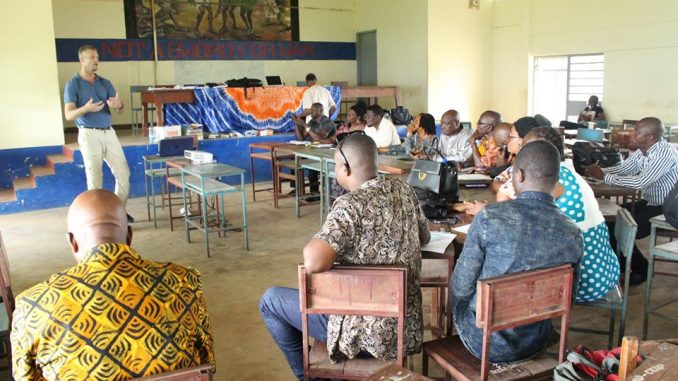
The collaboration between the European Union and the Ministry of Basic and Senior Secondary Education, to create a more cooperative approach to quality assurance in schools has entered its pilot phase. Earlier this year, national and international Education Management consultants Dr Victor Kabia and Mr. Bas Boonstoppel presented a conceptual framework that outlines a “whole team model”, the objective of which is to raise the standard and quality of Sierra Leonean schools.
In the interest of increasing the quality of learning, health, hygiene and the emotional wellness of children, the whole team model emphasizes self-evaluation among schools and clear-cut plans for self-development. It also encourages greater collaboration between school staff and Inspectorate staff whose role it is to monitor information received from schools, as well as provide mentorship and training to teachers and school leaders.
In order to increase the pool of trained personnel in this area, potential trainers were invited to a series of preparatory workshops at the Port Loko Teachers Training College, to be informed and provided with the necessary orientation to the whole team model approach to school quality assurance. The objective of the training of trainers was to extend the training to school leaders in four target districts; Bombali, Port Loko, Kenema and Bo. The Ministry of Technical and Higher Education (MTHE), the Teaching Service Commission (TSC) and the Ministry of Basic and Senior Secondary Education (MBSSE) have been key players in the formulation and execution of this new initiative. The three institutions provided three groups of trainers; Deputy Directors of Education from the MBSSE, college lecturers from the MTHE and school leaders from the TSC.
“We developed a handbook on the concept of the whole team model,” said local Education Management consultant Dr Victor Kabia at the first of the workshops. “We are now teaching the trainees what is in the handbook and how to use it.”
The first phase of the training consisted of interactive sessions during which trainees were introduced to the concept of the whole team model and how it ties into structural quality improvement in the schools. They were also instructed on how to deliver the information to their counterparts using the handbook.
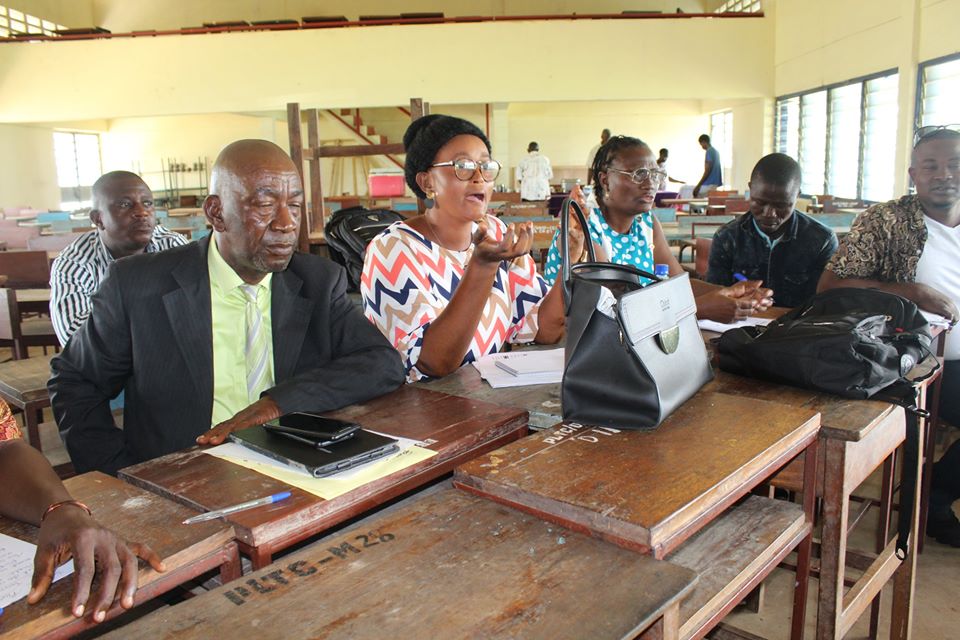
School Leaders, College Lecturers and Deputy Directors of Education.participants attended the training on the Whole Team Model for School Quality Assurance at the Port Loko Teachers College.
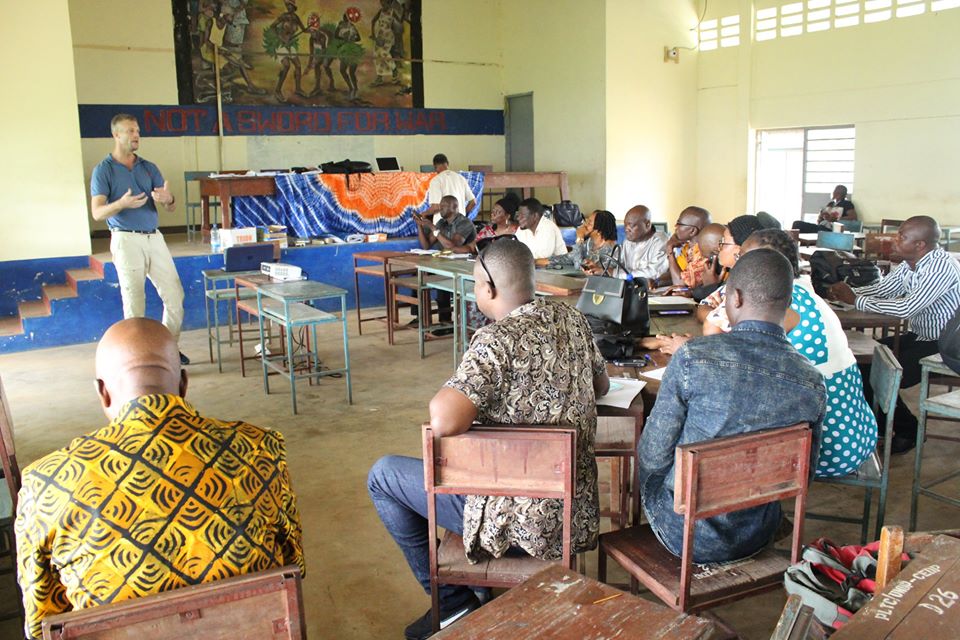
The 15 participants who attended the workshop came from the four target districts; Makeni, Port Loko, Bo and Kenema.
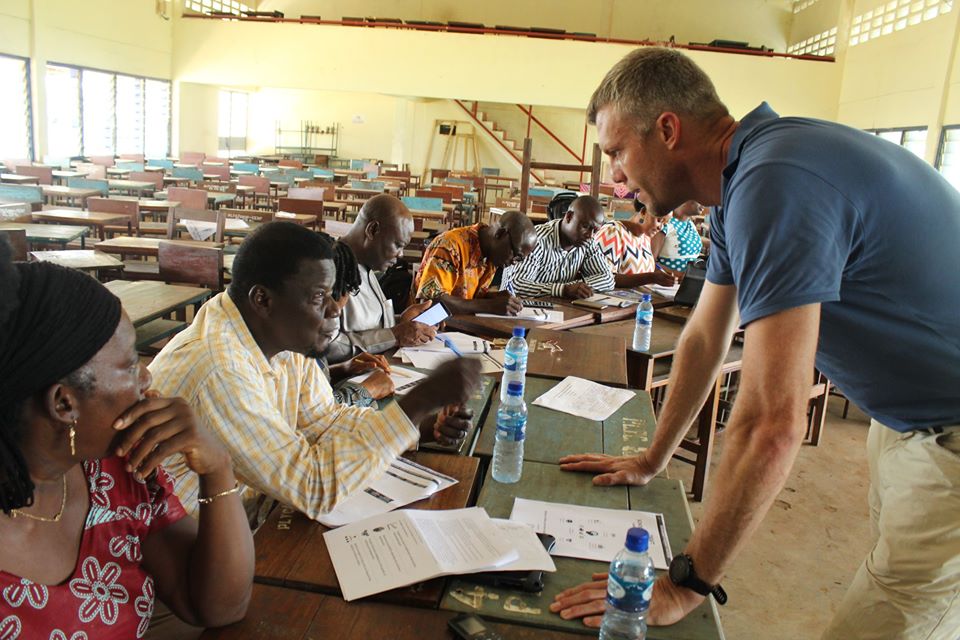
Mr Bas Boonstoppel is the international Education Management Consultant assisting in the rollout of the School Quality Assurance initiative.
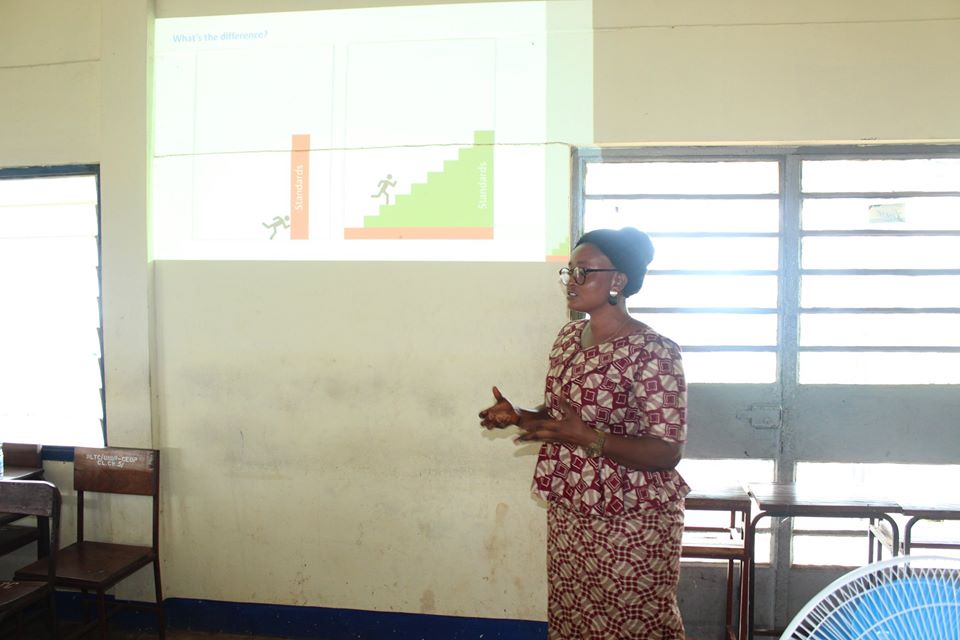
Participant demonstrates what she has learned about the Whole Team Model.
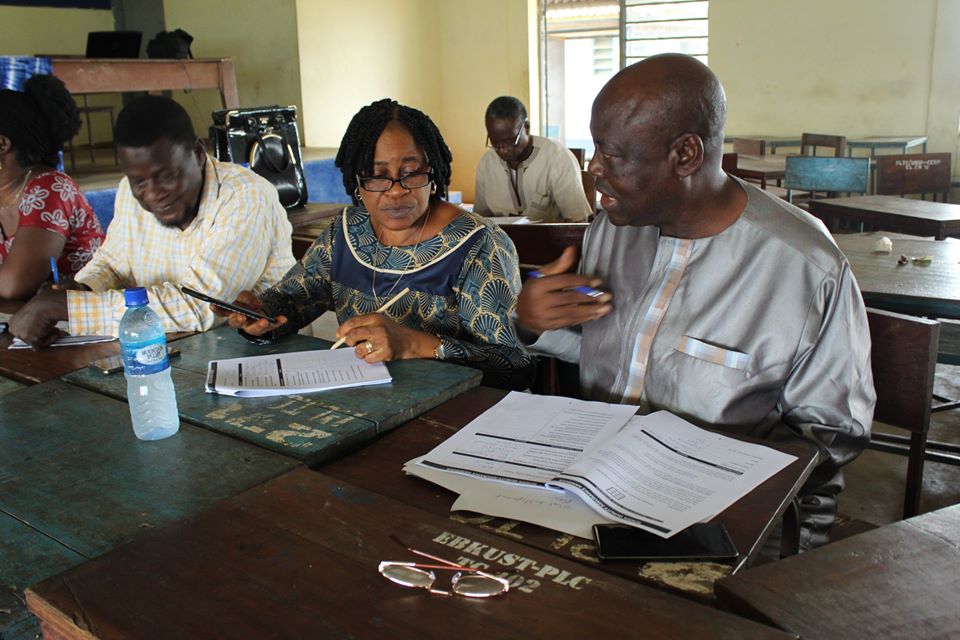
Deputy Director of Education for Bo District John Amara Swarray makes a point while learning about the Whole Team Model.
The training is especially important as many of the school leaders who will shoulder the responsibility of implementing the school improvement process, have had no prior formal training in school management. “The handbook is designed to enable school leaders to facilitate the school improvement process,” confirms Mr. Bas Boonstoppel the international consultant on the project. “The handbook also includes reporting templates so that school leaders can clearly report on the efforts being made to implement quality improvement.”
Lack of trained school supervisors has hindered quality development in most schools. Participants admitted to having had little to no experience in that area prior to the workshop. “We knew there were supervisors but we never saw them actually going to the schools to assess what the teachers were doing,” said workshop participant Fatmata Kabia, a lecturer at the Ernest Bai Koroma University of Science and Technology, Makeni. “With this training, school leaders will be empowered to strengthen the supervision process in their schools, so that the aspect of ‘quality’ in Free Quality School Education can be achieved.”
A vital aspect of school quality assurance is accountability; District Education Offices are tasked with demanding accountability of school leaders in order to determine schools that are underperforming and failing to meet the minimum requirements for quality. One of the training tools that has been developed is a manual for District Education Officers (DEOs). The manual shows how, in addition to ensuring that the schools meet the expected standards, such officers can also guide school leaders and dialogue with them to identify opportunities for making school improvements.
The success of the pilot will depend on the extent to which school leaders are able to implement the processes they have learned after the training. “We need to closely monitor how this pilot is implemented in the four districts, identify lessons learned, improve the systems and processes that we have developed before they are replicated countrywide,” says Bas Boonstoppel.
The Director of the Inspectorate Mr. Mohamed S Sesay will be organizing a collaborative planning meeting at the end of the pilot to determine an integrated way forward.

Leave a Reply